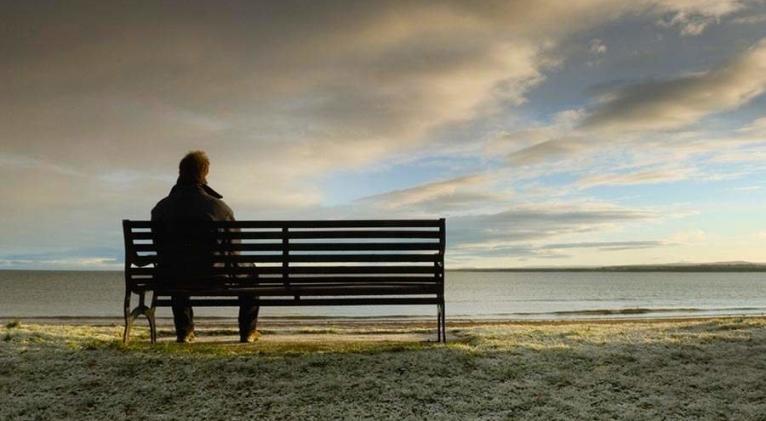When Loneliness is Not Temporary
especiales

Sometimes we want to be alone and we cry out for it. This is healthy, and I wish we could enjoy moments of retreat all the time. But, when loneliness is not temporary and we don’t decide it, but rather we suffer it with anguish, for whatever reason, and we feel that deep emptiness, the restlessness due to the lack of company along with discouragement and sadness, then it’s already a matter of a condition that can affect our mental state, and we need help.
I'm thinking that this is how old people with few relationships must feel, almost hermits because they lost interaction skills or suffer from some condition that prevents them from having a direct connection. It’s logical that they suffer discouraged with regret, that they even lose their appetite and interest in providing their own entertainment because they believe that they are not important to others.
Person-to-person contact is not only a pleasure, it’s a need. We are social beings by nature, and living in isolation can leave us with some burdens. Loneliness is a subjective feeling, it’s more than a transitory mental state that’s related to anxiety, depressive behavior, and decreased cognitive abilities.
Life is diverse and complex, and although we have episodes of wanting to be alone in the world and we try to have spaces to organize our chakras, thoughts, and plans, this does not usually extend over time because in reality it exists in the majority, in some times more in the inside than others, a common fear of living in solitude, as if it were a curse from Macondo, the imaginary town of Gabriel García Márquez.
Of course, I’m referring to true loneliness, not having a person with whom to interact, or who only exist due to infrequency, for example. Experts consider that there are levels, and there are people who suffer or enjoy it more than others, that’s why it’s relative, because it has to do with the psychic strength of each person, with their own experiences and emotions.
Few people are lucky and learn to deal with themselves and even more so, alone for a long time. The rest experience unpleasant sensations, and it can be serious psychologically, with physical and social consequences. Extreme loneliness is associated with increased risk of cardiovascular disease, dementia, stroke, and premature death.
I remember a few years ago the story of a woman who died alone in the Netherlands, I haven't forgotten her name because it seems strange to me, her name was Bep de Bruin. Perhaps it’s a rather exotic example for a reality like ours in which no one is out of sight too much, different from what happens in other cities in the world where people live a bit isolated without contact even with their neighbors; but I tell you so we can see how sad it can be if we suddenly find ourselves without company.
The thing went as follows, the woman, over 70 years old, was left without family ties or acquaintances, and she no longer left the house because even her bills were paid automatically by deduction from her checkbook. Bep de Bruin died sometime around in 2003 and she was only discovered, by chance, a decade later, when there was a need to enter her property. I find it a very depressing story.
We don’t know if she died without the opportunity to receive help, but in any case it’s distressing to end one’s days like this, as if you didn’t exist, and even, I imagine that at times it was hard to believe that someone was not interested in you, and who knows what other torments endured in the twilight of her life.
Bep de Bruin's story is not isolated. Perhaps her unnoticed death is particular, but in the world many older adults—and a large number of young people and adolescents as well—remain alone, and that’s why the World Health Organization (WHO) considers it a public health problem and promotes that we pay more attention, that we devise some policy that counteracts emotional abandonment.
Of course, being alone is not the same as feeling alone, which is why we must keep in mind that the psychological contribution varies from one person to another, and for this reason we recommend taking care of it and not minimizing it, much less ignoring it because it can leave several consequences, from loss of personality balance, exacerbation of states, negative feelings and bad mood.
It’s also important to highlight a common factor for loneliness: the increase of older adults. Old age is a complex moment in life that sometimes comes accompanied by voids or mutilated routines, as well as ailments and the perception of isolation, even when among other people. That’s why there’s currently talk that it’s in this age group where “loneliness epidemic” is most evident.
In some societies, activities are designed so that those adults, who suddenly retired and were left without family nearby, can keep themselves entertained and socializing. They also follow up on those who are not able to move so that they don’t lose contact with their peers.
For WHO, this is a global priority, and in countries of Europe and Asia there are already specialized institutions, even ministries of loneliness, where research, census and action are carried out because in this way happiness is promoted and inherited problems such as cardiovascular diseases, cognitive impairment and addictions are avoided.
Translated by Amilkal Labañino / CubaSí Translation Staff














Add new comment